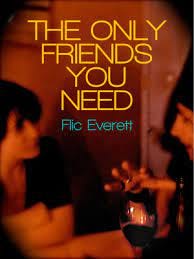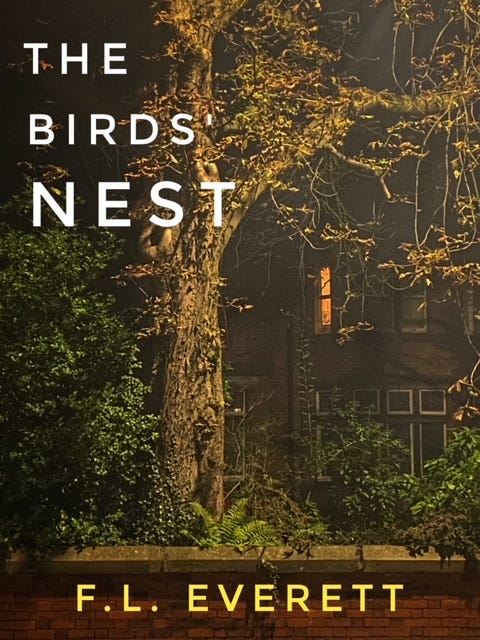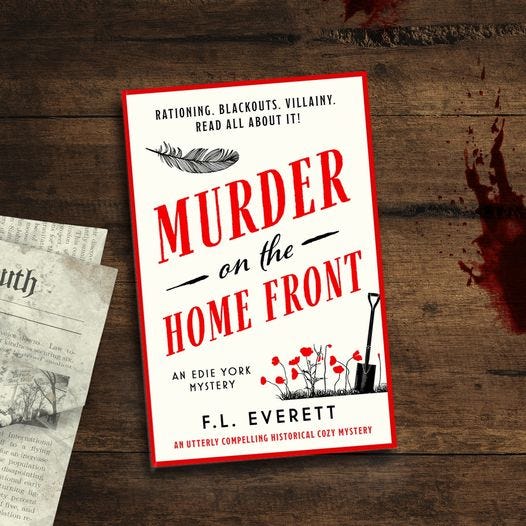How to write a novel without losing your mind
Got a novel in you? Think carefully about whether it should stay put...
This is my first Substack in many months – not only because I’m lazy and love starting things before getting bored and drifting away after some other fascinating scent (yes, maybe I have got ADHD, thank you, everyone in my life, for pointing that out) – but also because I’ve been very busy writing novels. This is the kind of thing I’ve always wanted to say.
'Sorry I couldn’t come to your thing, I was writing my novel.’
‘St Tropez? Oh I’d love to, but the novel deadline... my agent would never forgive me!’
I doubt I’m alone in having spent my entire life dreaming about writing novels, practising acceptance speeches and contemplating imaginary stacks of my books on the front table in Waterstones, as my wrist aches from repeatedly signing my name for my intelligent, attractive fans.
I think we tend to daydream about things that might just, if we were better, cleverer people, be within our grasp. I have never fantasised, for instance, about performing meticulous brain surgery on a baby, or crossing the finish line in the women’s hurdles (is that a thing?). Having been a writer for many years, however, it’s very easy to drift from thinking about my ‘how to fluff up your bath towels’ commission for the Daily Mail to wondering, ‘how will I begin my speech when I accept the Booker?’
What’s generally missing in all of this, though, is ‘what will my book actually be about?’ Like an imaginary lover, it’s both perfect yet vague - a shiny cover? Some kind of…intense Maya Angelou quote to open with?
Eventually, though, I did it. I wrote a novel, and I got a three-book deal, and the first in the series comes out on Thursday this week. All my dreams have come true… except nothing is ever that simple.
Take my ink-stained, crabbed hand, and I’ll walk you through what actually happened to get me to this point. Then, and only then, you can decide if you really want to write that novel - or if you’d rather be happy.
HOW IT BEGAN
I always wanted to write a novel. I’ve been a freelance journalist since I was 21, and underlying everything I ever wrote, from ‘How to Spice it Up in the Bedroom part 2980’ to ‘Why Johnson is Going Straight to Hell’, was the fervent, unspoken wish that I was writing fiction instead. But as everyone knows, saying you want to make a living writing stories is like saying ‘I want to be a pirate.’ It just doesn’t happen for most of us.
Notoriously, full-time fiction writers make on average, £10 000 or less a year, and almost all, apart from the big beasts, are shored up by a partner doing a boring, ordinary job to pay the bills, or by inherited wealth. Most write in between their own boring, ordinary job- or they don’t have time at all.
Back in the noughties, when I was reasonably successful as a journalist, I had a few meetings with agents, off the back of some non-fiction books I’d written (in a frenzy of deadline panic, watching Anthony and Makosi cavorting in the Big Brother house at 2am).
One of them, a go-getting, streaky-blonde sort of woman, told me I should write commercial fiction.
‘Do you know what the average literary debut sells?’ She asked me. I shook my head.
‘About eight hundred copies, if you’re lucky.’
That was the end of my Booker-winning dreams, and the beginning of my ‘a paperback in every supermarket!’ fantasy.

HOW IT CONTINUED
In 2010, between writing articles and having a family, I wrote the novel we’d talked about. It was called ‘The Only Friends You Need,’ and was a very noughties sort of novel - different viewpoints, a group of thirty-something friends live-laugh-loving in West Didsbury …I tried to base it on the agent’s recommendations, and it ended up a story about people I didn’t like very much having vague, middle class problems. I sent it to her and she liked it, but ‘had some recommendations.’
These were, ‘rewrite the entire thing to my specifications if you want it to stand a chance of getting published.’ Of course I wanted to get it published. People who say ‘write for yourself’, fine, if writing to you is a mildly enjoyable hobby and you don’t care if anyone reads it. If, however, it’s your entire fricking life-plan and your safe retirement is based purely on one day writing a lucrative bestseller because you’re not good at anything else and journalism is collapsing round your ears, no, you’re not going to ‘write for yourself’ and craft your epic fantasy trilogy about a mouse in space, if your agent is telling you it won’t sell.
I spent several months re-writing, around having a family and a day job, (in which I was the main, and sometimes only) breadwinner. Still, I reasoned, once she sold my book to a publisher… ker-ching! TV adaptations, movie rights, adoring quotes - ‘I laughed till I wept - Graham Norton’ - it would all be worth it.
Except a week after I sent it back to her, I got an email: ‘Sorry, Flic (when they use your name, it’s always bad news) - I feel the moment has moved on, and publishers aren’t really looking for this sort of thing now. Do send anything else you’ve got though.’
Right, yes, all those secret manuscripts I never mentioned, stacked up ready to send. Which would you like to see?
I went to bed for a day, then rose like a tattered phoenix in a leopard-print nightie and decided to self publish it. Which I did, and it made me about £2000 over the next year. I had to do all my own PR, which I loathed, and ultimately, it was a return on time investment of about £0.01p, and my Mum read it and didn’t really like the characters either.

In 2013, my ex-husband and I sold our house and moved to Bath (another long story). For once, we had a few grand in the bank, and I decided I’d spend Fridays writing a new novel.
‘Why don’t you write a crime novel, seeing as you only ever read crime novels?’ he asked me. Looking back, It’s hard to believe that hadn’t occurred to me before. I did, and it took me six months of Fridays and weekends and evenings. It was set in the '60s and featured a young obituary writer in Manchester, with searing literary flashbacks to the War. When I finally finished the edit, my husband and I had split up and I’d moved back to Manchester.
I sent it to agents, and I’ll spare you that process, which lasted at least three years. It can be summed up by the phrase made famous by Vicki Pollard - ‘yeah, but no.’
‘Great writing, loved the characters, we just don’t feel...’
‘So enjoyed reading, but in the current climate...’
Times changed, empires crumbled, train wheels clickety-clacked, newspapers span dizzyingly in black and white. By the time Covid struck, I was was living in the Scottish Highlands with my new partner and we spent lockdown in his holiday rental property which is, quite literally, in the middle of nowhere. Obviously, time to write another novel, which I did in three months. This one was a psychological thriller called The Birds’ Nest, and I sent it to a handful of agents, who ‘really enjoyed it, but didn’t feel the time was quite right.’
I was beginning to feel that all literary agents were dangerously temporally challenged. I wasn’t even that upset by the rejections by now. I assumed I would just go on offering up my work and being refused, like a dog bringing slippers that no longer fit his owner (Ok, that’s too much, just going for a brief weep. Crying for the imaginary dog in my metaphor, not for me).
I then spent a year doing a full-time editing job, featuring a daily Zoom conference at 8.30am, which nearly killed me - and after that, I realised that the corporate world is not for me. I thought seriously about training as a psychotherapist then remembered that I don’t like people enough to listen to them all day.
It was early 2022 when I was scrolling Twitter (as it still was, in those long-ago halcyon days), and I saw a tweet from publishers Bookouture, asking writers to tweet their synopsis, and they’d follow up on any that interested them.
With nothing to lose, I tweeted about my young obituarist, and I had a reply, saying they’d be interested in seeing the whole book.
By then, I was far too bitter to imagine anything would come of it, though of course you always hope - (‘my God, Carruthers! This is the best book that’s ever been written!’) so I sent it, expecting a months-long wait, followed by another ‘really enjoyed reading this, sadly, we feel the time isn’t right’ to add to the pile.
But instead, the editor said she liked it. They might be interested. She had to speak to the team.
HOW IT ENDED (FOR NOW)
Obviously, I was entirely relaxed and cheerful over the next few days as I awaited news, in the way a hippopotamus is relaxed and cheerful when it sees a crocodile swimming in its watering hole. A better word might be ‘vibrating.’
Then she came back to me with an email beginning, ‘You might not want to do this, but…’
My heart sank. Set it in medieval times. Kill your main character in chapter one. Re-work it as a Gen-Z rom-com.
‘…we feel it works best as a cosy crime novel, and wondered if you’d consider setting it during the war?’
I want to say I was shocked, dismayed, how could they take my precious words and meticulous research and throw them on the bonfire? But actually, it made complete sense. There’s nothing cosy about the sixties, and my big mistake had been to ignore the boundaries of genre. If you want to write commercial fiction, there are rules - if you write rom-com they can’t have a massive row at the end and break up, and if you plan to write cosy crime, you can’t set it in the era of free love and Altamont and expect it to work.
I agreed, instantly. It took four months (between my boring, ordinary day job of freelancing) and I sent it back, primed once again for ‘thanks so much, sadly, we just don’t feel the time is…’
But no. She loved it. Last November, I got a contract for a three-book Edie York series, set in Manchester in WW2, starring our favourite obituary writer, now a very different - but much better - character in a very different, and much better, story. And no, obviously I couldn’t have flashbacks to the war. It IS the war. No great loss, if I’m honest.
I’ve written book two, Murder on the Home Front, I’ve approved covers, I’ve pored over copy edits, I’ve even approved the actor who reads the audio book. I’m a quarter of the way into Book Three and I feel I was born to write cosy crime. I love my characters, I love researching the war, and Bookouture has been nothing but supportive, enthusiastic and fabulous.
It’s everything I dreamed of - I mean, obviously I don’t get any money unless they sell, and if they don’t, I’ll have to get another full time job and get up at the crack of dawn to peer at far-away colleagues on screen. I don’t want to do that, I want to write books forever. But nobody can ever be sure if that’s an option, unless they’re a big beast. I’m barely a beetle at the moment.
Luckily, it doesn’t matter. If you really, truly feel you must write novels, be like me. Just keep writing the bloody things, until one day, somebody says yes. Or of course, you can self-publish. But you might need to get used to the hell of doing your own PR.

What I’ve learned
1 The chance of someone saying yes to your first attempt is minimal. If they do, it’ll still need a giant rewrite. Accept this before you even send it off.
2 Murder your darlings, as Capote said. You may love your gloriously flourishing chapter that works as a flashback device to the hero’s grandfather’s time in the East India Company, which really sheds light on the dilemma he faces now - no. It doesn’t. If it bores your editor, it will bore your readers. Ditch it and don’t be precious.
3 Indie publishing isn’t easy. Having done it, it will take up a LOT of your time. Only bother if you can accept that marketing your book will be far harder work than actually writing it.
4 Reviews. Everyone says don’t read them, however I have been poring over Netgalley (for early reviews) like a Swiss watchmaker for two months now. So I will say, if you do read them, have a series of cruel and unusual imaginary punishments lined up for the people who write ‘not really my sort of thing, don’t enjoy crime books, one star.’ It will make you feel better.
5 Don’t write what you want to write. This is the worst advice ever. Instead, locate the genre that will work for your writing - women’s fiction, historical, rom-com, fantasy epic, cosy crime, gritty crime, psychological thriller - and write in that, if you want a passing chance of publication.
6 The most important tip. Do not confuse the worth of your writing with your worth as a person. A no isn’t about you. It’s about the market - and whether (altogether now)….the time is right.
7 Support other writers by buying their books. Here’s one to start you off.
MURDER IN THE BLITZ by F.L Everett, Bookouture
I’d love to know your thoughts on the writing and publishing process - please let me know, and if you do read my book, a review on Amazon is a gift of gold dust. (Unless it’s ‘package arrived slightly damp. One star.’)










Just ordered the book through my indie bookshop - it sounds great!
And thank you for writing about the publishing process. I’m in the process of trying to find a literary agent for my second non-fiction book about the psychology of weight loss.
Four rejections to date and so I am comforted, sort of, by your story!
Hope your book does fabulously well. Best wishes. Helen McCarthy
This is, truly, a great piece. I am a lousy reader of cosy crime but your sounds spot on and I really hope it does blazingly well. x